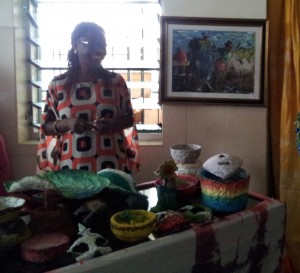Christmas is a time when we exchange gifts in many countries – not the most important aspect of Christmas, though related to its authentic meaning. This reminds me of a story I heard. An American manager participated in a Corporate Social Responsibility program aimed at capacity-building in Africa. On a visit to a small village, and trying to adapt to local customs he brought a kit of company products for the Chief. He then shared pictures of this enjoyable time in a Facebook report of the trip. And that’s when trouble began.
The company’s Legal Department saw the pictures: they thought someone could interpret them as an attempt to bribe the Chief. The manager almost got fired. I should say that the company is in the Fast Consumer Goods sector, and the kit was worth quite a bit.

Gifts have different meanings. Institutionalized gift exchange serves as an alternative to markets and hierarchies in some contexts. A gift-economy is a collective allocation of goods based on need and abundance. This traditional exchange mechanism co-exists with the market in some African societies.
I learned about dama – the gift economy system that works in Mali – in an article by Beverly Bell posted at Yes! Magazine. In essence, “the person who receives a gift will probably pass it on to someone else. Another person altogether, down the line, will give back to the original giver. Dama involves return, but from within a broadly defined community to which the gift has moved on.”*
According to Bell, dama serves several purposes:
- It maintains social connections: “Gifting is not an economic activity so much as a spinning of that web, continually reinforcing interconnectedness and the collective.”
- It sustains and celebrates the values of sharing and humanity: “It’s the link with your neighbors, your parents, your relatives. If you can’t keep that link, you are not a human being.”
- It keeps the community well: “A community is only as strong as its parts.Only by all providing for each other will all survive and thrive.”
Christmas gift exchange – both at the personal and corporate level – has become an institutionalized practice. Let’s not forget its original meaning.
On a humorous note: do you want to know what’s considered a great Christmas gift in Ghana? Read here.
Merry Christmas to all of us who celebrate it!
* Quotes taken from “Mali’s gift economy,” by Beverly Bell.

